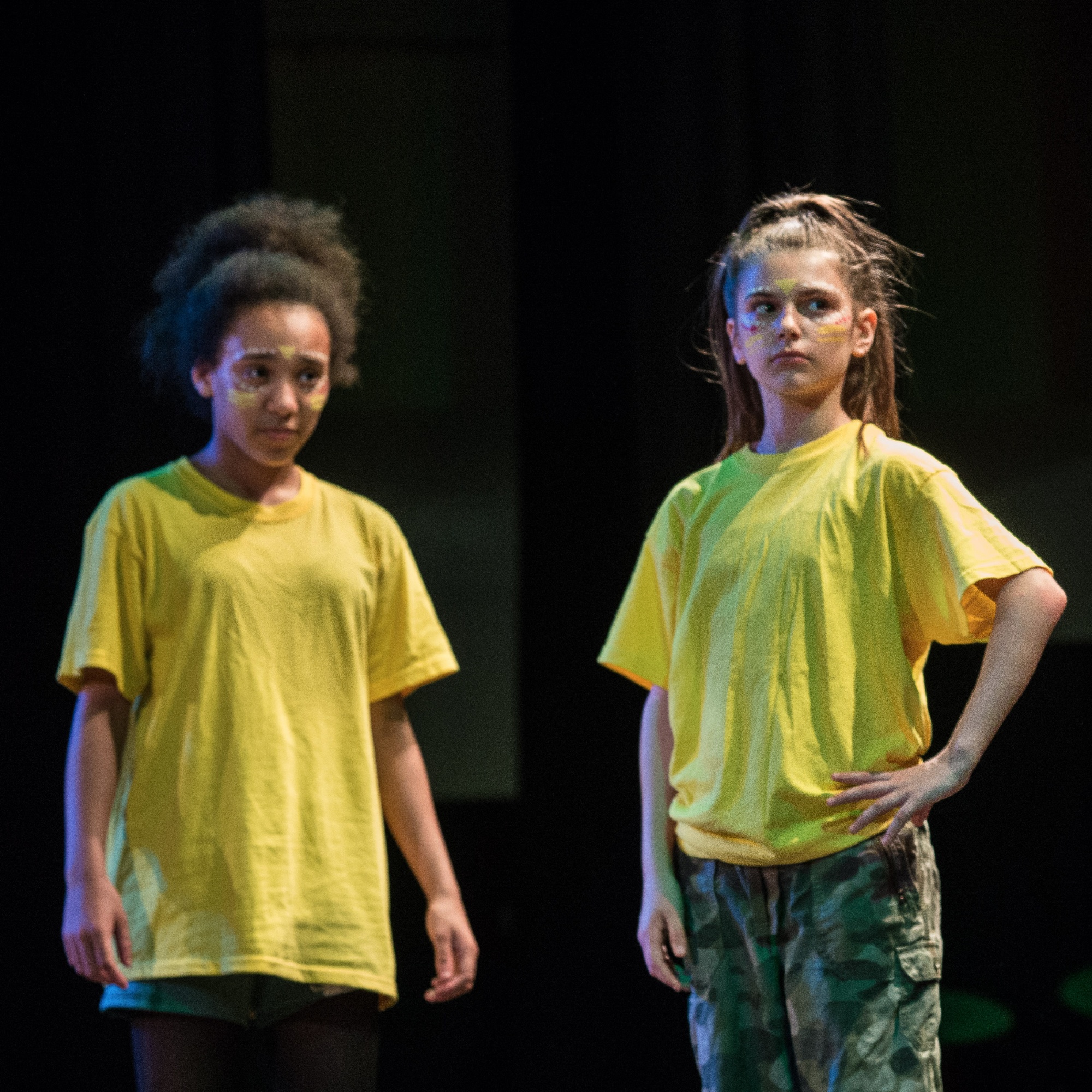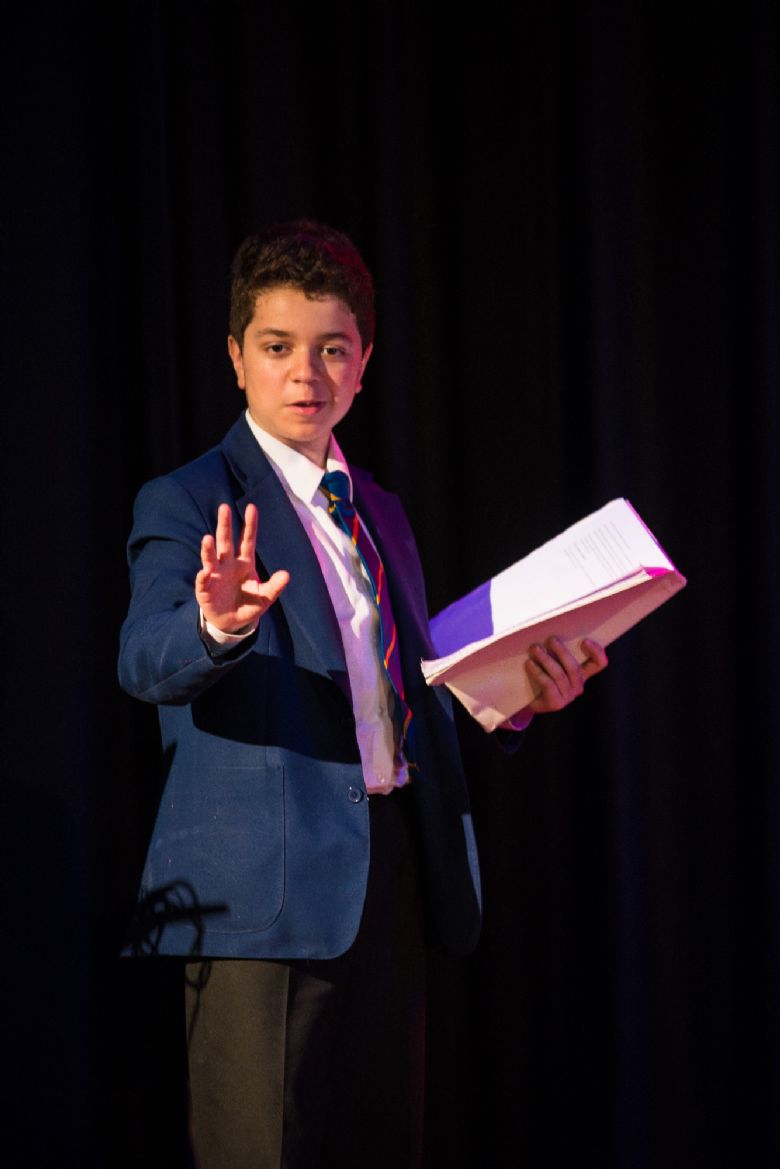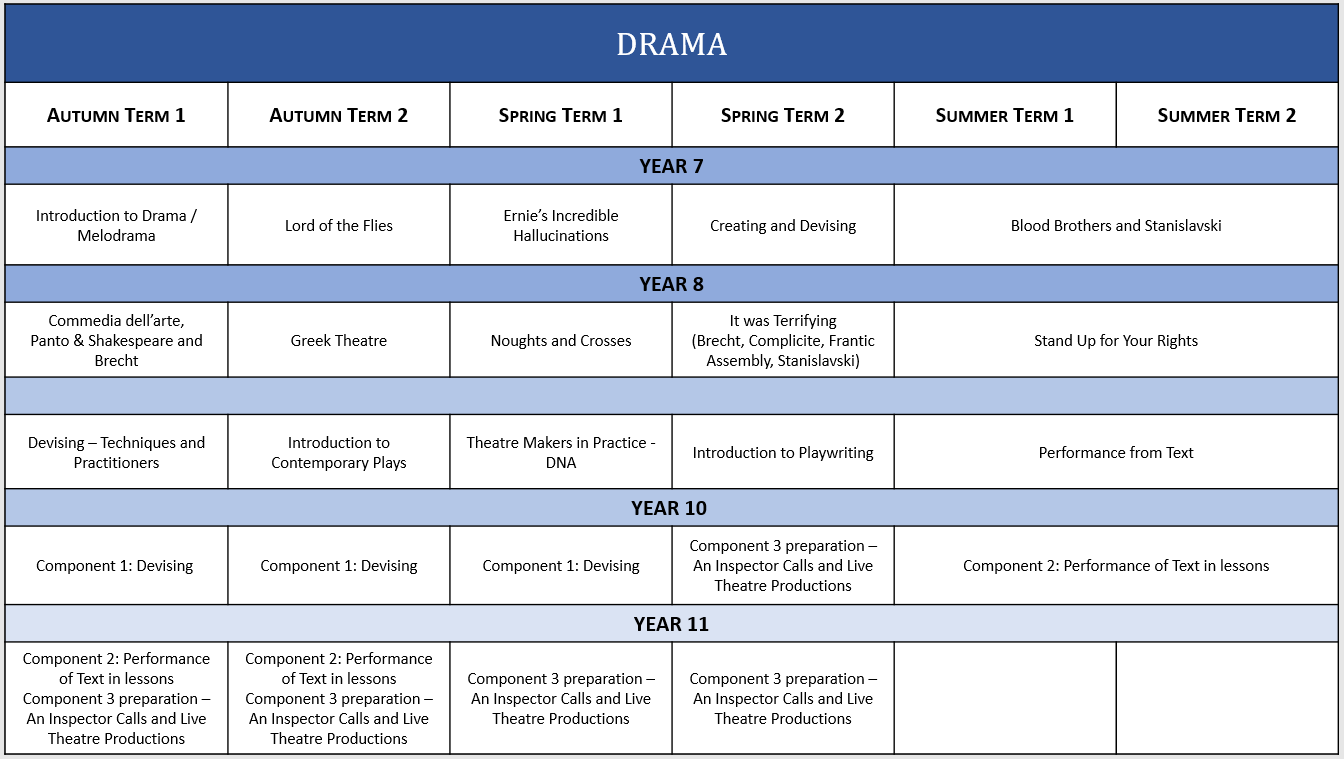Drama
Drama is a vibrant and popular subject that is taught to all Year 7, 8 and 9 and can be developed at both GCSE and A Level.
Drama helps students to develop an understanding and appreciation of how to work collaboratively and enables them to consider how to communicate ideas both effectively and imaginatively. Drama provides opportunity for students to be creative and develop knowledge of the world around them in interesting and dynamic ways. It should enable students to communicate effectively and create critically. It allows understand their current social, cultural and historical context and to know and apply processes in contemporary professional theatre practice.
The drama curriculum is designed to lead students through the key stages, developing these skills to ensure that they have a broad range of dramatic experiences.
Drama through the Key Stages
The curriculum content is chosen to be inclusive, inspiring and foundational to a pupil’s understanding of how drama portrays the world around them. The drama curriculum at Bishop Douglass is sequenced to allow students to develop a deep understanding of theatre and plays that will provide them an appreciation later in life. They learn concepts that will enable them to build on their high functioning skills (e.g. management, synthesis of knowledge to create an outcome). Our curriculum and choice of plays allow us to cater for our diverse and international student body, with frequent new pupils. We also try to address issues, with the choice of content that it important to our student’s lives.
We have designed the KS3 curriculum to cover ‘canon’ plays such as The Crucible, Lord of the Flies and Blood Brothers, as well as more recent and more experimental plays such as The Mobile Phone Show, as well as plays that the students devise themselves. All of these give excellent opportunity for the students to develop the key skills needed for GCSE in creating and writing, in performance and design. Some plays overlap with those studied in English, which allows for a much firmer grasp of the works. Historical contexts are provided, which allows pupils to place their studies in drama in a wider world setting and build links with other subjects.
The repetition of the framework of our schemes of work (inputting skills, techniques and knowledge; application to a play or written task; peer and self-evaluation) renders the content more accessible and therefore meaningful and memorable long-term. We build on skills - from facing the audience Year 7s’ first lesson, to breaking the fourth wall , to creating your own play in the style of a practitioner at GCSE, to envisioning a production concept as a director, designer and performer at A Level - so that skills are repeatedly used with added ones each time.
Key Stage 3
Students will study a selection of topics:
- Melodrama
- Devising theatre
- Acting out a script – Ernie’s Incredible Hallucinations
- The Mystery Plays
- Characterisation - Blood Brothers
- Commedia dell’arte / Panto / Shakespeare
- Greek Theatre
- Design Elements - The Crucible
- Theatre practitioners
- Ensemble theatre - The Mobile Phone Show
It is expected that the range of skills covered will broaden each year and that skills will be revisited and developed. On the whole, each class will follow the same schemes over the two years with some tasks being differentiated.

Key Stage 4
Edexcel Syllabus – GCSE Drama
- Component 1: Devising Theatre (40% of final GCSE grade) - using stimulus materials to create a short play, while writing a portfolio analysing and evaluating your process.
- Component 2: Performance from Text (20% of final GCSE grade) – performing two extracts from a play, in the form of a scene and/or a monologue.
- Component 3: Theatre Makers in Practice (40% of final GCSE grade) - a written exam on An Inspector Calls and a Live Theatre Production, to learn the work of the playwright, performers, directors and designers.

Key Stage 5
KS5 Curriculum
Edexcel Syllabus – A Level Drama and Theatre
- Component 1: Devising (40% of final A Level grade) – working as a group to devise a play fom a stimulus of a play text, using a practitioner’s practice to inform the process. Also writing a portfolio analysing and evaluating this process.
- Component 2: Text in Performance (20% of final A Level grade) - performing a scripted group play and a monologue.
- Component 3: (40% of final A Level grade) - a written exam on evaluating a piece of live theatre, how you would perform and design a production of the set text Machinal and proposing a production concept as a director for the set text Woyzeck.
Curriculum Map

Enrichment Opportunities
The drama curriculum aims to broaden and deepen students’ knowledge of the subject by providing one or more theatre trips each year for every year group, host drama workshops delivered by industry professionals, organise a school production with roles onstage and in design and management. We organise work Experience at Artsdepot through a partnership with the Barnet Cultural Network and encourage personal development with performance programmes through bodies such as Facing History & Kings College.
All examination groups visit the theatre as part of their respective course. A theatre trip is offered to each non-examination year group (KS3) as well. Exciting workshops with leading theatre professionals are incorporated into the GCSE and A Level courses, such as the National Theatre’s playwriting course where an NT playwright mentored our A Level students toward crafting their own play. We have partnerships with brilliant local Youth Theatres so we can offer information on free sessions as well as bursaries to paid sessions outside of school.
Performance is central to extracurricular activities. There is Drama Club twice a week open to all students, with auditions which lead to acting parts or technical roles in the sensational annual school production. There are also additional performances at whole school Masses, Prizegiving evening, Creative Arts evening and other school activities such as International evening. Dance Club runs once a week with performances to sold-out audiences. Examination groups at KS4 and KS5 perform regularly to family and friends outside of timetabled lessons.
For further information please contact us via email - schooladmin@bishopdouglass.barnet.sch.uk





